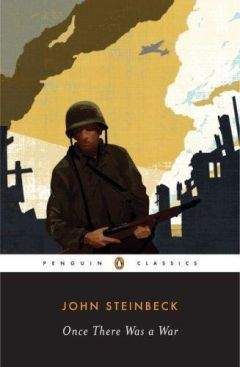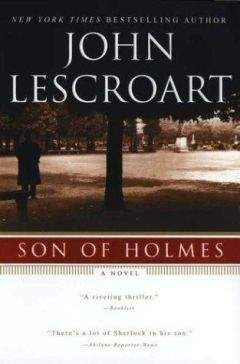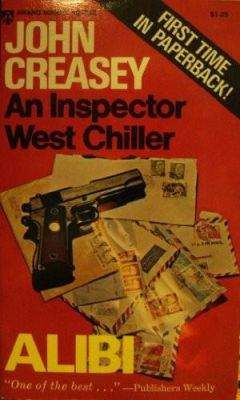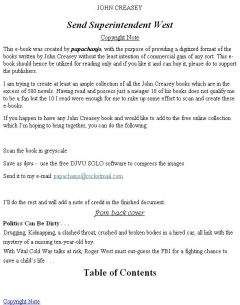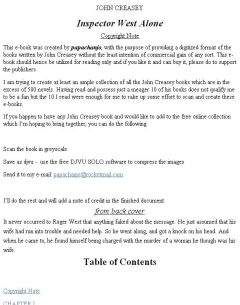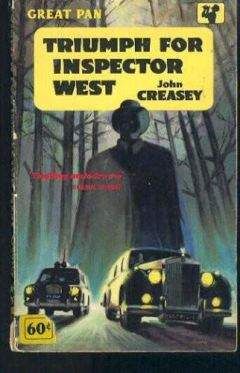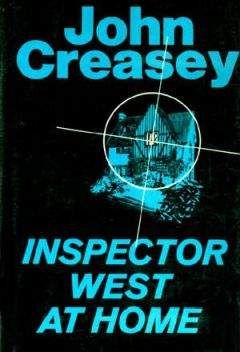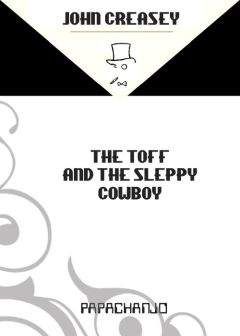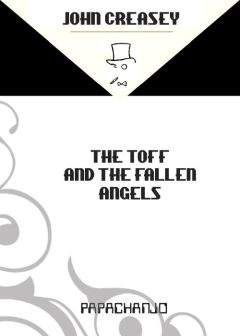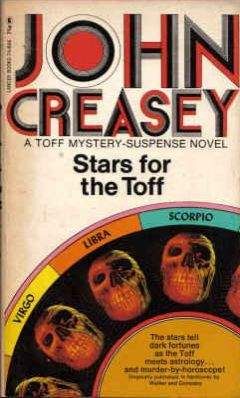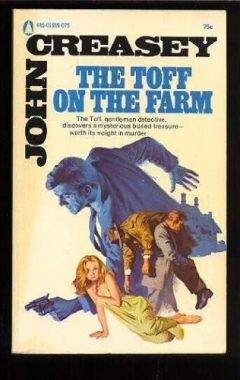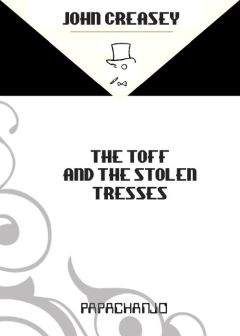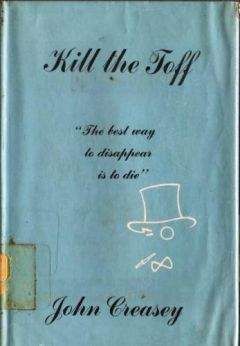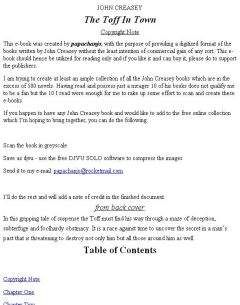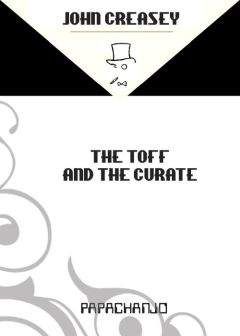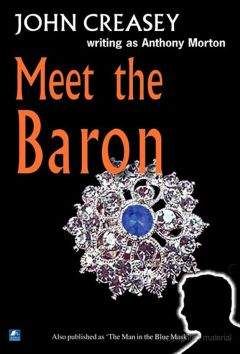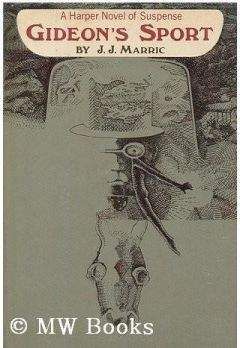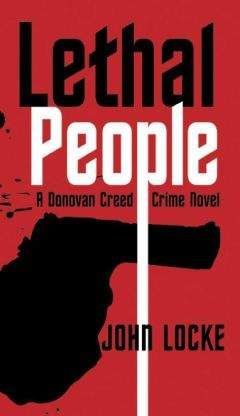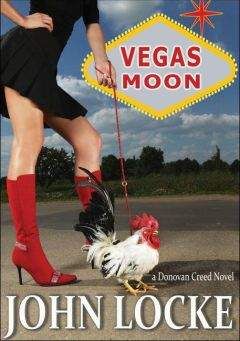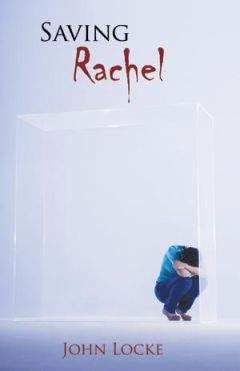John Creasey - The Toff and The Lady
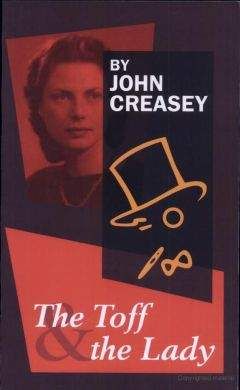
Скачивание начинается... Если скачивание не началось автоматически, пожалуйста нажмите на эту ссылку.
Жалоба
Напишите нам, и мы в срочном порядке примем меры.
Описание книги "The Toff and The Lady"
Описание и краткое содержание "The Toff and The Lady" читать бесплатно онлайн.
“Nothing, probably,” said Rollison. “How long has he known where you worked?”
“Well—since I started, of course. In fact since I interviewed matron and she offered me the post. That can’t have anything to do with this, can it?”
“I don’t see how,” admitted Rollison.
As he spoke a car drew up outside with a squeal of brakes which startled the girl. Rollison leaned forward, and saw the top of a Wolseley. A moment later Grice and two of his men climbed out of the car. Rollison turned hastily.
“The police are here. Tell them the truth, as we’ve discussed it. If they ask whether I’ve been here, you can tell them, but there’s no need to volunteer the information. And don’t worry too much!” He was walking across the room as he spoke, and he picked up the man’s cigarette case and slipped it into his pocket.
“That belongs to Marcus,” Phyllis said.
“I hoped it did,” said Rollison: “He’ll get it back.” He stepped to the front door. As he opened it he heard footsteps on the stairs. Then a door opposite Flatlet 6a opened, and a man in painter’s overalls appeared. He seemed taken aback at the sight of Rollison, and darted behind the door again. As he did so he slid his right hand into the capacious pocket of his overalls, but he was a shade too late to hide the gun in his hand.
CHAPTER SIX
NO MURDER
THE door slammed. The footsteps of the police reached the first landing. Rollison raised his voice, and there was an urgent note in it.
“Grice! Stop the painter in overalls at the back!”
He put his left shoulder to the door behind which the man had disappeared. He was handicapped because of the glass in his pocket—if he shook it too much the two-shilling piece might move and the liquid would splash up to the handkerchief and be soaked up. The door sagged under his pressure. On the landing below Grice was calling orders to his men. As the door sagged still further, Grice came rushing up the stairs, and the door of Phyllis Armitage’s flat opened.
“Finish this off, will you,” said Rollison to Grice, and stood aside. Grice put his whole weight behind the effort, and the door burst open.
As he staggered inside, Grice muttered: “I hope you’ve good grounds for this.”
“A man with a gun and intent to murder,” said Rollison, and stepped past him towards a room which looked exactly the same as 6a. The window was wide open and a gentle breeze coming through. He looked out in time to see the man in overalls jump from the ladder to die pavement and run towards Queen’s Road. At the same time Grice’s two men reached the street and raced in pursuit.
Grice reached the window in time to see his men disappearing. He drew back as Phyllis came into the room.
Rollison beamed. “Miss Armitage—Superintendent Grice, of New Scotland Yard.”
“How do you do,” said Phyllis, calmly enough.
“Er—good-evening.”
“May I inquire what is happening?” asked Phyllis, and her turned-up nose helped to give her just the right expression of ingenuous bewilderment. “There’s no one in this flat—the
tenant has gone away for a week.”
“There was someone inside,” stated Grice.
“About whom we shall tell you in due course,” said Rollison, who felt on top of the world. “I think the Superintendent wants a few words with you, Miss Armitage.”
She still looked puzzled. “Of course,” she said, and went back to her own rooms, leaving both front doors ajar.
Grice had changed into a brown lounge suit and looked much more comfortable. There was a note of acerbity in his voice.
“I thought I’d find you here when I heard you’d been to the nursing home,” he said.
“Prophecies all coming true,” said Rollison, “and yet you always say you don’t believe in hunches.” He unbuttoned his pocket as he spoke.
Grice said: “What have you said to the girl?”
“You didn’t give me time to say much,” said Rollison. “Another ten minutes, and I would have got the whole story out of her. Here’s a present for you. I don’t mean the florin,” he added as he held the medicine glass out. There was still a little liquid at the bottom when he tilted it. “Go on, it won’t bite—didn’t the matron tell you I’d taken it away?”
“Yes,” said Grice. He took the glass and put it on the mantelpiece. “Why did you take it?”
“Curious disquiet at nursing home,” said Rollison. “It may have been genuine alarm at the collapse of “the lady”, or it might have been because they have failed to carry out police and doctors’ instructions, but it might also be because they harbour deep and guilty secrets. I didn’t intend to take any chances with that glass, although it probably contains nothing but Neuro-Phosphates.” The bantering note faded from his voice as he added: “How is the lady?”
“It will be touch and go,” Grice answered. “They think they’ll pull her round.”
“No murder yet,” said Rollison. “Here nor there.”
“You’re in an infuriating mood,” said Grice. “Here or there what?”
“No murder,” said Rollison. “Man with gun dressed as a painter was almost certainly after our demure little lady here. She has a very pretty face, not at all a bad figure, and something of the air of an ingenue which I think is natural and unassumed.”
You always did fall for a pretty face,” said Grice.
“That’s uncalled for, unfair, unjust and quite true,” declared Rollison. “See what you can find out from her. I don’t think she will keep much back. I do not think that she left the mystery lady’s room on a pretext, but I shouldn’t read too much in that. By the way, what doctors attend “the lady”?”
“Renfrew, of Wimpole Street, and Cray.”
“Renfrew as Mrs. Barrington-Ley’s society nominee, I suppose,” said Rollison. “Cray put up by the Yard.”
“Why do you ask?”
“Curiosity,” said Rollison.
“You’re unbearable,” said Grice. “Are you coming in with me to talk to this girl?”
“No, I must be off. I promised to call on Hilda to-night.”
“Mrs. Barrington-Ley?”
“Yes. Good hunting!” Rollison smiled and led the way out of the room.
As he reached the landing one of Grice’s men appeared on the landing below. The man came up when Rollison beckoned him, and reported that the pseudo-painter had managed to get away, but that Sergeant Miller was trying to find out where he had gone.
Grice was about to tap at Phyllis Armitage’s door and Rollison was half-way down the stairs, when he stopped, turned and called:
“Oh, William?”
“Yes?” said Grice, also turning.
“How was the wedding?”
Grice glared. Rollison, smiling as if he thought he had cracked a brilliant joke, continued down the stairs and into the street. There was a chance that Jolly had succeeded in tracing Marcus Shayle’s home, and therefore a chance of seeing the man before the police reached him. Hilda could wait until he had heard from Jolly. He called his taxi and, in a voice loud enough for Grice to hear, gave him the address of Barrington House, changing it only when they were in Bayswater Road.
Beneath his good mood there was an underlying note of uneasiness. Even if the case resolved itself fairly well, and Marcus Shayle had poisoned the lady of lost memory, much would remain unsolved, and there would be danger to both the unknown woman and to Phyllis Armitage. It was disquieting to think that a man had been waiting in the neighbouring flatlet, doubtless with the intention of murdering Phyllis. The man had probably postponed action because he knew that Phyllis had a visitor, but then been forced into the open. From these conclusions it was reasonable to suppose that Marcus Shayle and others were most anxious that Phyllis should not disclose the story of her actions that day.
Jolly had not yet returned to Gresham Terrace. It was then nearly half-past seven, and Rollison telephoned Barrington House, asking for Hilda. A man with a stilted voice regretted that Madam was out. So, it proved, were David Barrington-Ley and Gwendoline. He had been wrong to assume that Hilda would be sitting at home waiting for him.
He took out the slip on which he had written down the name and address of the firm of accountants which Shayle had visited. Messrs. Pomeroy, Ward & Pomeroy, of 88g The Strand, were in the telephone directory, and he made a note of their number. Then he called the house of Sir Lancelot Anstey. He was remotely related to Anstey by marriage; Anstey managed all his legal affairs and, for a man of nearly seventy, viewed his activities with a remarkably benevolent eye.
When Anstey came to the telephone, he said:
“More trouble, Rolly?”
“Certainly not,” said Rollison. “A trifling matter in which the advice of the most distinguished member of the legal profession would be welcome.”
Anstey chuckled.
“You certainly want me to do what I shouldn’t!”
“If that were so I should come and see you with a bottle of fine old brandy,” said Rollison. “The question before the oracle is—if you were not in existence, would anyone recommend me to take my business to Pomeroy, Ward & Pomeroy, of the Strand?”
“No,” said Anstey, promptly. “Not unless they had a good reason to dislike you.”
“It’s as bad as that, is it?”
“Now don’t misunderstand me, Rolly,” said the older man. “I know nothing against the firm, except that it sometimes handles cases which are rather unsavoury. It hasn’t a large connection and it isn’t very well-established. There is a companion firm of accountants—virtually the same people of course.”
“Is it a new firm?”
“It was started about ten years ago,” said Anstey. “It specializes in raising loans and mortgages and arranges advances on testamentary expectations.”
“Ah,” said Rollison. “Moneylenders.”
“What makes you inquire?” said Anstey.
“You’ve probably heard of the case of the lady in high society who lost her memory,” said Rollison.
“Do Pomeroys claim to know her?”
“They haven’t done, yet,” said Rollison. “Many thanks for the information.”
“I suppose it’s no use trying to make you explain,” said Anstey.
Although he had been very forthcoming for a lawyer, Anstey could probably have said much more. Rollison pondered over that and the record of the dual firms of Messrs. Pomeroy, Ward & Pomeroy, until the telephone awoke him from his reverie.
“Hallo, Jolly!” he said a moment later. “News?”
“Of a kind, sir,” said Jolly. “I am speaking from a telephone kiosk in the Strand. After making several brief calls at shops, and two telephone calls from public call-boxes, the young man returned to the office and is still there. I am now watching the entrance, sir, and it occurred to me that you would probably like to know at once what was happening.”
“Yes,” said Rollison. “I’ll come over at once. Follow him if he leaves again.”
“Very good, sir,” said Jolly.
Rollison picked up his hat and gloves and hurried downstairs. It was five minutes before he got a taxi, but the driver made good speed, and a quarter of an hour after he had received the message the taxi pulled up outside 80 The Strand. On the other side of the road, just emerging from an amusement hall from which came strident music, was Jolly. He showed himself for a moment and then disappeared.
Rollison paid the cabby and then went to 88g. On the ground floor there was a shop, and at the side door a board with a list of those companies which had offices above. Pomeroy, Ward & Pomeroy occupied two name-plates and the whole of the second floor. He went up the stone stairs, unable to keep his progress quiet and so walking boldly.
There was only one door on the second floor landing, marked with the two firms’ name and the word: Inquiries. A smaller hand-written notice invited everyone to “Please Walk In.”
Rollison did so.
He found himself in an empty outer office of sumptuous appearance. Here was nothing of the traditional fustiness of an accountant’s or solicitor’s office, but chromium and light oak furniture, a thick pile carpet, and a polished counter with a bell and the words: “Please Ring If Office Empty: Comfortable armchairs with leather seats were lined along one wall, and by the side of each was an ash-stand with a magazine rack. Rollison glanced at a dozen magazines and found they were current issues.
On the other side of the counter were three doors, one leading right, and marked: “Mr. J. E. Pomeroy,” the others blank. From J. E. Pomeroy’s office there came a murmur of conversation and, as Rollison lifted the flap in the counter and stepped through to the forbidden side, the clink of glasses. A man laughed, another spoke in a low-pitched voice which Rollison heard with difficulty, and then the other man laughed more loudly. It was a throaty sound.
“Enjoying themselves,” murmured Rollison, and reached the door.
Suddenly the office was filled with the jangle of swing music which even a swing fan might have thought discordant. It came from Mr. Pomeroy’s office; the men inside were indeed about to enjoy themselves. The music was so loud that it was unlikely that they were carrying on a conversation. Rollison hesitated. If he opened the door and walked in, they might, with some justification, take a very high hand. He did not want to give them reasonable grounds for doing so, and decided to return to the right side of the counter and ring the bell. As he turned, he saw a door opposite open.
He stood still.
“Good-evening,” said Marcus Shayle.
He stood by the open door, smiling broadly, as if he were taking great pleasure in discomfiting Rollison, who stared at him without expression. Marcus Shayle was a man with most pleasant features. He had bright and rather merry eyes, his full lips smiled as if he were really amused, and there was something boyish about his round face and curly hair. He was well-dressed in flannels, and looked as flourishing as the outer office of the firm.
“Good-evening,” said Rollison.
“Can I help you?” asked Shayle.
“I’m not sure,” said Rollison.
“Or would you prefer to help yourself?” asked Shayle, with a broad beam. “I wonder if you will do something for me?”
It was clear that when Rollison had stepped through the counter he had trodden on a warning bell or a light—and that the radio had been switched on to deaden the sound of movement in the other room. The laughter was explained; it had been to deceive anyone who stood outside. In those few seconds his respect for Marcus Shayle and the firm rose considerably.
“Will you do something for me?” insisted Shayle.
“What?” asked Rollison, giving the impression that he was very much alarmed.
“Lift the telephone and dial Whitehall 1212,” said Shayle.
Rollison murmured: “The number sounds familiar.”
“It’s very well known,” said Shayle. “You see, when a stranger forces open the door of this office and shows other indications of being here with a dishonest purpose, we always call the police.”
Подписывайтесь на наши страницы в социальных сетях.
Будьте в курсе последних книжных новинок, комментируйте, обсуждайте. Мы ждём Вас!
Похожие книги на "The Toff and The Lady"
Книги похожие на "The Toff and The Lady" читать онлайн или скачать бесплатно полные версии.
Мы рекомендуем Вам зарегистрироваться либо войти на сайт под своим именем.
Отзывы о "John Creasey - The Toff and The Lady"
Отзывы читателей о книге "The Toff and The Lady", комментарии и мнения людей о произведении.





